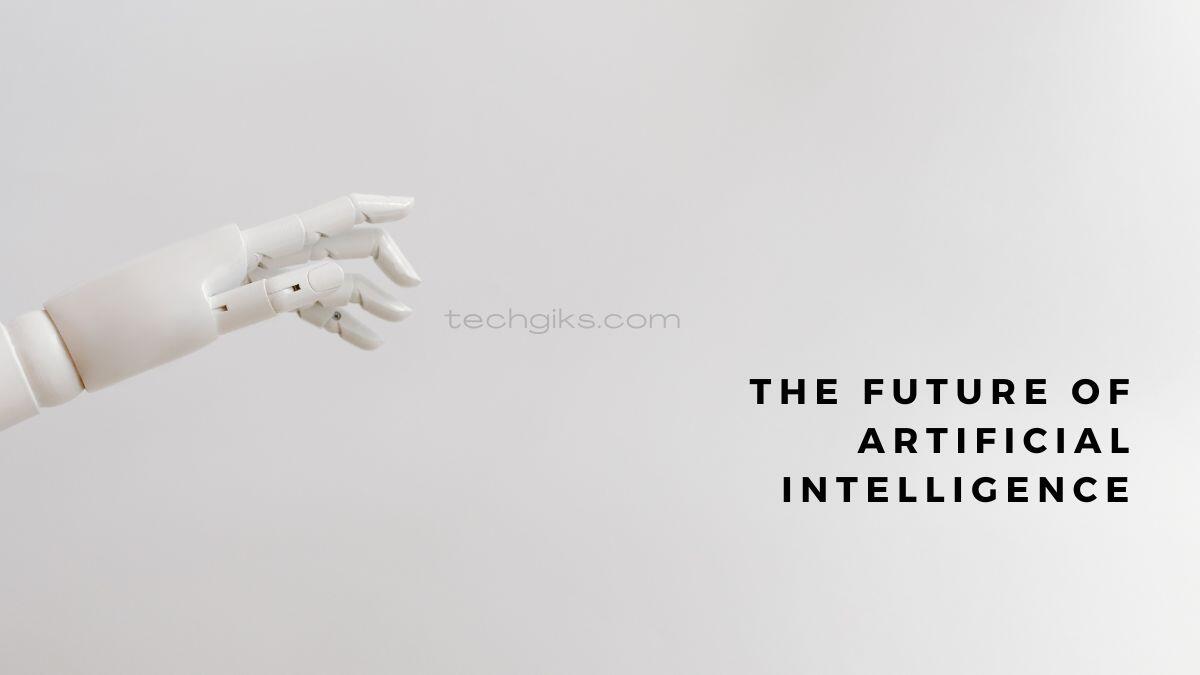The Future of Artificial Intelligence
You may have probably heard of artificial intelligence (AI), but what is AI, exactly? Simply put, AI is the ability of a computer to learn and make decisions on its own. It could include anything from recognising objects in photos to understanding human speech. AI is rapidly evolving and changing the world as we know it. In this post, we’ll explore the history of AI, current applications, and where it’s headed in the future.

What is Artificial Intelligence?
AI is a term that is used to describe machines that are capable of intelligent behaviour. It can include tasks such as problem-solving, learning, and decision-making. AI has been around for a long time, with the first working AI system being created in the 1950s. However, it is only recently that AI has begun to be incorporated into everyday life, with many people now using AI-powered devices such as Google Home and Amazon Echo. So, what is the future of AI? Well, it’s hard to say precisely, but it is clear that AI will play an increasingly important role in our lives.
What are the different kinds of Artificial Intelligence?
There are different types of artificial intelligence, and each has its unique capabilities and purpose. However, here are some of the most common:
Machine Learning: This AI can learn independently by analysing data. It can identify patterns and make predictions based on past experiences.
Natural Language Processing: This AI can understand human language and respond in a way that is natural for humans.
Predictive Analytics: This AI uses historical data to predict future outcomes.
Robotics: Robotics combines computer science with mechanical engineering to create robots that we can use for manufacturing, exploration or warfare.
How is Artificial Intelligence being used today?
How is artificial intelligence being used today? Well, here are a few examples:
Some AI applications are helping us to make better decisions. For instance, programs can now analyse large data sets to help us make informed choices about healthcare and finance. Many companies are also using AI to improve customer service. For example, chatbots can respond to customer inquiries and provide information about products and services. The entertainment industry is also utilising artificial intelligence. For instance, creating realistic 3D character animations using AI algorithms is now possible.
What are the Benefits of Artificial Intelligence?
Our discussion in this article has focused on the fundamentals of artificial intelligence and what it is. But what are the benefits of artificial intelligence? In short, AI can help you increase efficiency, productivity and performance in many areas.
AI can help businesses automate tasks, process data more quickly and accurately, and make better decisions based on predictive analytics. Consequently, it can result in higher profits, faster turnaround times, and improved customer service.
For individuals, AI can help to make everyday tasks easier and faster, such as booking appointments, shopping online, or managing finances. Moreover, it can improve our cognitive abilities and keep us healthy and informed with personalised health advice.
What are the Challenges of Artificial Intelligence?
As artificial intelligence becomes more sophisticated, some challenges need to be addressed. One of the main challenges is the fear of AI becoming too powerful and taking over the world. Some people believe that AI will eventually become more intelligent than humans and will be able to outsmart us and take over control. While this may be a concern for the future, it’s important to remember that we still have much to learn about AI and its capabilities.
Another challenge is the ethical implications of artificial intelligence. As AI takes on more complex tasks, such as making decisions for humans, it raises important questions about morality and ethics. For example, in case of a mistake, please let me know who is responsible. Is it the programmer, the user, or the AI itself? These are only one of the issues that need to be addressed as AI becomes more widespread.
What is the Future of Artificial Intelligence?
The experts are still working on this issue, but we know a few things. First, AI will play a more significant role in our lives as time passes. Whether used for personal or business purposes, AI is becoming increasingly sophisticated daily. Another thing we know about the future of AI is that it will cause a lot of disruption. Jobs humans have traditionally done will soon be done by machines, causing a lot of anxiety in the workforce. But while there may be challenges associated with the rise of AI, many opportunities are also to be explored. So what’s the future of artificial intelligence? Nobody knows, but it’s safe to say it will change things significantly. Are you ready for what’s coming?
Conclusion
As you can see, artificial intelligence is changing how we live and work and will only become more prevalent. While some are concerned about how AI will impact our lives, the potential benefits are too great to ignore. So what do you think about artificial intelligence, if you don’t mind me asking? Are you excited about the possibilities or worried about the implications?
Check out our other articles if you are interested in technology.
Study tech-related subjects to explore the field of technology.
